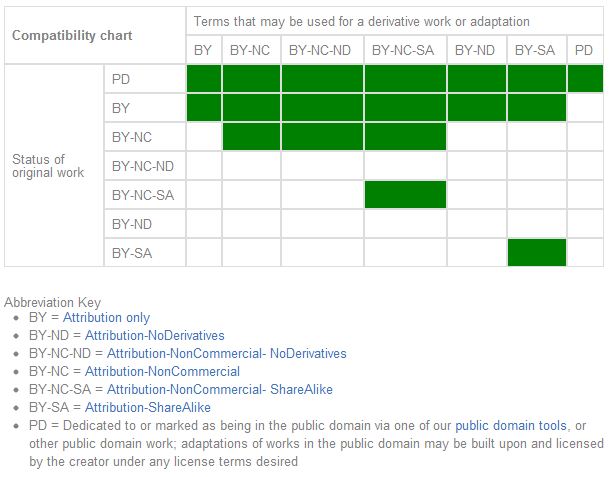Difference between revisions of "Creative Commons"
(→Legal) |
(→Ethical Issues) |
||
| Line 15: | Line 15: | ||
The most common criticism of the creative commons license is that the creativity of individuals can be exploited by others without investing as much time in creating original content. This idea lumps those using the creative commons license into the mindset of rehashing old work without contributing anything novel. | The most common criticism of the creative commons license is that the creativity of individuals can be exploited by others without investing as much time in creating original content. This idea lumps those using the creative commons license into the mindset of rehashing old work without contributing anything novel. | ||
| − | Because of the low amount of official | + | Because of the low amount of official administration under creative commons, many people can abuse works under its license by claiming others' work to be their own. Smaller groups of content production like bloggers or small news publications can be greatly affected by others taking their work under the Creative Commons license and reusing it. |
==License Types== | ==License Types== | ||
Revision as of 02:09, 29 November 2011
Creative Commons (CC) allows its users to utilize the Internets full capabilities of sharing information with others and allowing that information to advance others work.
Contents
History
Creative Commons was founded in 2001 after receiving funding from the Center for the Public Domain [1]. In 2003 they had distributed 1 million licenses and as of 2009 that had licensed 350 million works and created their 3.0 version. [1]. Creative commons is intended to foster an infrastructure that supports creativity, sharing, and innovation by legally protecting materials that the original creators allowed presence in the public domain.
Name
Creative Commons is a common place for its users' information. The term commons is used because that is what the company set out to create; a common place where professional works can be accessed, and as there website says " copied, distributed, edited, remixed, and built upon".
Legal
Ethical Issues
The most common criticism of the creative commons license is that the creativity of individuals can be exploited by others without investing as much time in creating original content. This idea lumps those using the creative commons license into the mindset of rehashing old work without contributing anything novel.
Because of the low amount of official administration under creative commons, many people can abuse works under its license by claiming others' work to be their own. Smaller groups of content production like bloggers or small news publications can be greatly affected by others taking their work under the Creative Commons license and reusing it.
License Types
The Three Layer Concept
Creative Commons licenses are written in three "layers". This is done to make CC even easier to use. The first layer happens to be the legaleze that actually dictates the legal aspects of the license. Legal writing is often difficult and hard to read for most of the people that use Creative Commons so the company provides the second layer which is called the Commons Deed but is often referred to as the Human Readable version. This layer provides an easy way for the every day non-lawyer to understand what exactly the license allows for and covers. The third and final layer is the "machine readable" version. This allows for software and search engines to know what is available under a CC license.
Attribution
Attribution (CC BY) allows anyone to use the material for any purpose but requires them to attribute the work back to the original author.
Attribution-NoDerivs
Attribution-NonCommercial
Attribution-NonCommercial-NoDerivs

References
- ↑ 1.0 1.1 History http://creativecommons.org/about/history accessed November 28 2011.
